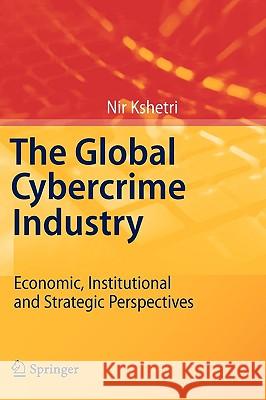The Global Cybercrime Industry: Economic, Institutional and Strategic Perspectives » książka
The Global Cybercrime Industry: Economic, Institutional and Strategic Perspectives
ISBN-13: 9783642115219 / Angielski / Twarda / 2010 / 252 str.
The Global Cybercrime Industry: Economic, Institutional and Strategic Perspectives
ISBN-13: 9783642115219 / Angielski / Twarda / 2010 / 252 str.
(netto: 421,70 VAT: 5%)
Najniższa cena z 30 dni: 424,07
ok. 22 dni roboczych.
Darmowa dostawa!
The Internet's rapid diffusion and digitization of economic activities have led to the emergence of a new breed of criminals. Economic, political, and social impacts impacts of these cyber-criminals' activities have received considerable attention in recent years. Individuals, businesses, and governments rightfully worry about the security of their systems, networks, and IT infrastructures. Looking at the patterns of cybercrimes, it is apparent that many underlying assumptions about crimes are ?awed, unrealistic, and implausible to explain this new form of criminality. The empirical records regarding crime patterns and stra- gies to avoid and ?ght crimes run counter to the functioning of the cyberworld. The ?elds of hacking and cybercrime have also undergone political, social, and psychological metamorphosis. The cybercrime industry is a comparatively young area of inquiry. While there has been an agreement that the global cybercrime industry is tremendously huge, little is known about its exact size and structure. Very few published studies have examined economic and institutional factors that in?uence strategies and behaviors of various actors associated with the cybercrime industry. Theorists are also debating as to the best way to comprehend the actions of cyber criminals and hackers and the symbiotic relationships they have with various players.











